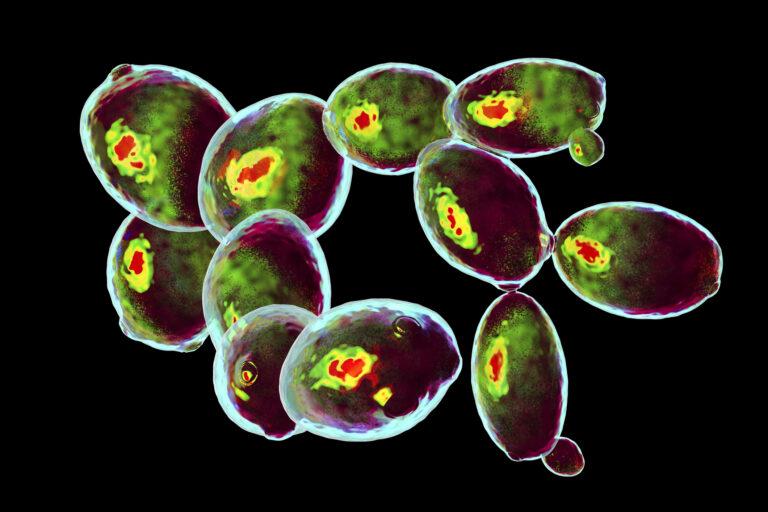Are you interested in learning about the benefits of eating organic food? Organic food has been growing in popularity due to the numerous benefits it provides. In this article, we will explore 10 surprising benefits of eating organic food, and why you should consider incorporating it into your diet.
Introduction
Organic food refers to food that has been produced without the use of synthetic pesticides, fertilizers, or genetic engineering. The demand for organic food has been increasing due to its perceived health benefits, environmental sustainability, and better taste. The 10 Surprising Benefits of Eating Organic Food: What You Need to Know will help you understand the advantages of incorporating organic food into your diet.
The 10 Surprising Benefits of Eating Organic Food: What You Need to Know
Here are 10 surprising benefits of eating organic food that you need to know:
1. Better Nutritional Value
Organic food is more nutritious compared to conventionally grown food. It contains higher levels of vitamins, minerals, and antioxidants. Organic farming practices focus on improving the soil quality, which results in healthier plants with more nutrients.
2. No Harmful Chemicals
Organic food is produced without the use of synthetic pesticides, fertilizers, and other harmful chemicals. These chemicals can be harmful to human health and the environment. Eating organic food can help reduce your exposure to these harmful chemicals.
3. Better for the Environment
Organic farming practices are better for the environment. They focus on sustainability and preserving the soil quality, which helps reduce erosion and water pollution. Organic farming also promotes biodiversity by using natural pest control methods.
4. Supports Local Farmers
Eating organic food supports local farmers who practice sustainable farming methods. Buying organic food from local farmers helps support the local economy and reduces the carbon footprint associated with transporting food long distances.
5. Better Taste
Organic food has been shown to have better taste compared to conventionally grown food. This is due to the higher nutrient content and the use of natural farming practices, which results in healthier and more flavorful plants.
6. Reduces the Risk of Cancer
Eating organic food can help reduce the risk of cancer. Organic food is produced without the use of synthetic pesticides, which have been linked to an increased risk of cancer. Eating organic food can help reduce your exposure to these harmful chemicals.
7. Helps Improve Digestion
Organic food contains higher levels of fiber, which helps improve digestion. Fiber is essential for maintaining a healthy digestive system and reducing the risk of gastrointestinal problems.
8. Supports Animal Welfare
Organic farming practices focus on animal welfare. Animals are treated humanely and allowed to graze in open pastures, which promotes their health and well-being. Eating organic food supports these practices and helps promote animal welfare.
9. Better for Children
Organic food is better for children. Children are more susceptible to the harmful effects of pesticides and other chemicals. Eating organic food can help reduce their exposure to these harmful chemicals and promote their overall health and well-being.
10. Helps Protect the Future of Agriculture
Supporting organic farming practices helps protect the future of agriculture. Organic farming promotes sustainability and preserves the soil quality for future generations. Eating organic food helps support these practices and ensures the future of agriculture.
List of Mostly available Organic Vegetables and fruits
Organic vegetables and fruits are becoming increasingly popular as more people become aware of the benefits of eating organic food. Here is a list of some of the most commonly available organic vegetables and fruits:
Organic Vegetables
- Broccoli
- Carrots
- Cauliflower
- Cucumber
- Eggplant
- Green beans
- Lettuce
- Onions
- Peppers
- Potatoes
- Spinach
- Tomatoes
- Zucchini
Organic Fruits
- Apples
- Bananas
- Blueberries
- Grapes
- Mangoes
- Oranges
- Peaches
- Pineapple
- Strawberries
- Watermelon
These organic vegetables and fruits are widely available in most grocery stores and supermarkets. You can also find them at local farmers’ markets and online retailers.
Incorporating these organic vegetables and fruits into your diet can provide numerous health benefits, including improved nutrition and reduced exposure to harmful chemicals. So, consider adding some of these organic fruits and vegetables to your meals and enjoy the 10 Surprising Benefits of Eating Organic Food: What You Need to Know.
FAQs
Here are some frequently asked questions about eating organic food:
Q1. Is organic food more expensive than conventional food?
Yes, organic food can be more expensive than conventional food. This is because organic farming practices are more labor-intensive and require more time and effort.
Q2. Is organic food safer than conventionally grown food?
Organic food is generally considered safer than conventionally grown.
Q3. Is there any evidence that organic food is healthier?
Yes, there is some evidence to suggest that organic food is healthier. Organic food is more nutritious and contains higher levels of vitamins, minerals, and antioxidants compared to conventionally grown food.
Q4. Can eating organic food reduce the risk of cancer?
Yes, eating organic food can help reduce the risk of cancer. Organic food is produced without the use of synthetic pesticides, which have been linked to an increased risk of cancer.
Q5. Where can I buy organic food?
Organic food can be found in most grocery stores and supermarkets. You can also buy organic food from local farmers’ markets and online retailers.
Q6. Is it worth buying organic food?
Yes, it is worth buying organic food. Organic food provides numerous health benefits, supports sustainable farming practices, and promotes animal welfare.
Conclusion
Eating organic food has numerous benefits, including better nutritional value, no harmful chemicals, better taste, and improved animal welfare. It also helps support sustainable farming practices and promotes environmental sustainability. While organic food can be more expensive, it is worth the investment for the numerous health benefits it provides. Incorporating organic food into your diet can help promote your overall health and well-being while supporting sustainable farming practices.
So, if you want to enjoy the 10 Surprising Benefits of Eating Organic Food: What You Need to Know, consider incorporating more organic food into your diet. Your body and the environment will thank you for it!
This content was originally published here.




















